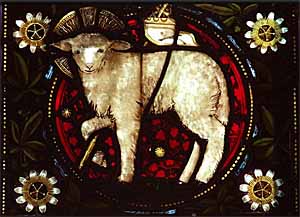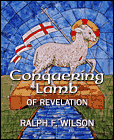Free E-Mail
Bible Studies
Beginning the Journey (for new Christians). en Español
Old Testament
Abraham
Jacob
Moses
Joshua
Gideon
David, Life of
Elijah
Psalms
Songs of Ascent
(Ps 120-135)
Isaiah
Advent/Messianic Scriptures
Daniel
Rebuild & Renew: Post-Exilic Books
Gospels
Christmas Incarnation
(Mt, Lk)
Sermon on the Mount
(Mt 5-7)
Mark
Luke's
Gospel
John's Gospel
7 Last Words of Christ
Parables
Jesus and the Kingdom
Resurrection
Acts
The Early Church
(Acts 1-12)
Apostle Paul
(Acts 12-28)
Paul's Epistles
Christ Powered Life (Rom 5-8)
1 Corinthians
2 Corinthians
Galatians
Ephesians
Vision for Church
(Eph)
Philippians
Colossians,
Philemon
1
& 2 Thessalonians
1 & 2 Timothy,
Titus
General Epistles
Hebrews
James
1 Peter
2 Peter, Jude
1, 2, and 3 John
Revelation
Revelation
Conquering Lamb of Revelation
Topical
Glorious Kingdom, The
Grace
Great Prayers
Holy Spirit, Disciple's Guide
Lamb of God
Listening for God's Voice
Lord's Supper
Names of God
Names of Jesus
Christian Art
About Us
Speaking
Contact Us
Dr. Wilson's Books
Donations
Watercolors
Sitemap
Day 5. A New Song to the Redeeming Lamb (Revelation 5:7-10)
 Agnus Dei, Stained glass, St John the Baptist, Needham Market, Suffolk, England. |
We're still in the heavenly throne room. The Lamb, the only one who is worthy, now takes the scroll from the hand of the Father.
"7 And he went and took the scroll from the right hand of him who was seated on the throne.
8 And when he had taken the scroll, the four living creatures and the twenty-four elders fell down before the Lamb, each holding a harp, and golden bowls full of incense, which are the prayers of the saints.
9 And they sang a new song, saying,
'Worthy are you to take the
scroll and to open its seals,
for you were slain,
and by your blood you ransomed people for God
from every tribe and language and people and nation,
10 and you have made them a kingdom and priests
to our God,
and they shall reign on the earth.'" (Revelation 5:7-10)
Imagine yourself here, in the heavenly throne room of God, on a sea of glass, clear as crystal, surrounded by the twenty-four elders and the four living creatures. You observe as the Lamb takes the scroll from the hand of the Father.
The watchers erupt with worship! Each of the elders has a harp (guitar is our most common modern worship equivalent). The prayers of the saints go up like incense before the throne. And music rises as a "new song."
A New Song
What is a "new song"? One that has never been sung before. Recently our church's worship pastor received a new song from the Lord, wrote it down, and then led our congregation in singing it to the Lord. Hallelujah!
Again and again we read about a new song, especially in the Psalms, as David and other worship leaders are given revelation in the form of new songs. Here are a couple of examples:
"Sing to him a new song;
play skillfully on the strings, with loud shouts." (Psalm 33:3)
"He put a new song in my mouth,
a song of praise to our God...." (Psalm 40:3a)8
Again in Revelation 14, the 144,000 sing a new song before the throne (Revelation 14:3). It is a special song that only they can know. I suspect that singing in tongues also involves singing to the Lord a new song and is beautiful before our King (1 Corinthians 14:15).
The new song indicates spontaneity, "new things" God is doing in your life (Isaiah 42:9), new growth, rather than exclusive reliance on traditional songs for your worship form. I encourage you to go someplace where you don't have to be self-conscious and try singing words or praise to a tune that you make up as you go. It doesn't have to be great -- just from the heart. Sometimes you hear little children sing this way. Try it! Try singing a new song to the Lord.
The Lamb Who Ransoms People for God (Revelation 5:9-10)
Ponder for a moment the content of this new song.
"Worthy are you to take the scroll and to open its seals...." (Revelation 5:9a)
The Lamb is worthy of the privilege of opening the seals of the scroll because of who He is (Day 4).
Now we see words that spell out the Lamb's sacrifice and its result.
"Worthy are you ... for you were slain,
and by your blood you ransomed people for God
from every tribe and language and people and nation,
and you have made them a kingdom and priests to our God,
and they shall reign on the earth.' (Revelation 5:9-10)
We saw the word "slain" in Revelation 5:6, where we saw "a Lamb standing, as it had been slain" (Day 3), with emphasis on the lamb slaughtered for sacrifice -- literally, slain by cutting the throat.9
So the Lamb is slain to be a sacrifice, for the very specific purpose of being a ransom to redeem all those held in slavery. "Ransom" here is agorazō, "to secure the rights to someone by paying a price, "buy, acquire as property"10 (1 Corinthians 6:20; 7:23; 2 Peter 2:1; 1 Peter 1:18). This verse recalls Jesus' ultimate purpose in ministry:
"The Son of Man came not to be served but to
serve,
and to give his life as a ransom11 for many." (Mark 10:45)
Jesus' own blood is the purchase price to manumit or free these valued slaves.
"You were ransomed12
from the futile ways inherited from your forefathers,
not with perishable things such as silver or gold,
but with the precious blood of Christ,
like that of a lamb without blemish or spot." (1 Peter 1:18-19)
These ransomed slaves are manumitted or freed "for God." He doesn't keep us in bondage but sets us free. We are his servants, yes, but the bond now is love, rather than law.
Notice that Christ's death on the cross is not just for the Jews. Rather, for people "from every tribe and language and people and nation" (Revelation 5:9). We are part of a cosmopolitan, trans-racial, wholesale buy-back of lost humanity. There is no place among us redeemed slaves for a sense of superiority based on birth or color or language or knowledge or wealth -- or even holy lives. We have all been slaves and now we are a freed people.
Priests and Rulers in Kingdom of the Lamb (Revelation 5:10)
Moreover, we are a freed people with a purpose in the Kingdom of the Lamb.
"You have made them a kingdom.13
and priests to our God,
and they shall reign on the earth." (Revelation 5:10)
"Kingdom" is basileia, a term used in relation to royal administration, the act of ruling, royal rule, especially "the royal reign of God," (usually rendered "kingdom of God").14
The song says of us believers that "they shall reign on the earth" (Revelation 5:10c). The verb is basileuō, "to exercise authority at a royal level, be king, rule."15 I imagine that we will be officials of some kind in the bureaucracy of the Kingdom of God, ruling or supervising parts of the administration of Christ Jesus. That might even include serving as client kings under the King of kings -- who knows? Whom we will govern, I'm not sure.
We also look forward to being "priests to our God," those who are dedicated to worshipping and serving God (also Revelation 1:6; 20:6), just as Peter envisions us as "a holy priesthood, to offer spiritual sacrifices acceptable to God through Jesus Christ" (1 Peter 2:5).
 Available in PDF, and Kindle formats, |
Sometimes we feel weak and helpless. The evil forces of this world can feel overwhelming. Surely, the early Christians felt that under the Roman persecutions. But the Book of Revelation -- and this passage particularly -- encourages us that this is only temporary. That Christ will open the seals and reign as King of kings, and we will reign with him.
There is a song sung in the darkness. And then there is a song sung as the new day breaks. A hopeful, more joyful song. This new song sung before the Lamb is one of those songs.
Prayer
Father, thank you for your grace. Thank you for paying the awful price that freed me -- and that keeps me free. Lord, prepare me to be ready to do my part in your Kingdom Administration as I rule with you and on your behalf. And help me to sing! In Jesus' name, I pray. Amen.
Day 5 Meditation (Revelation 5:7-10). You have been
redeemed, purchased by payment of a price. In your own case, what kind of
slavery have you been rescued from? Does this inspire you to sing to the Lord,
even while darkness still swirls around you? Why do you think Jesus wants you to
reign with him in the New Heavens and the New Earth?
https://www.joyfulheart.com/forums/topic/1879-day-5-redeeming/
Endnotes
(References and Abbreviations)
[8] See also Psalm 96:1; 98:1; 144:9; 149:1; Isaiah 42:10.
[9] Sphazō, "slay, slaughter, butcher," especially animals for sacrifice (Thayer 600). A related word is the noun sphagē, "throat" (Liddell-Scott).
[10] Agorazō, BDAG, 14, 2.
[11] "Ransom" is lytron, "price of release, ransom," especially also the ransom money for the manumission of slaves (BDAG 605).
[12] Lytroō, "to free by paying a ransom, redeem" (BDAG 606, 1b).
[13] Basileis (plural nominative of basieus, "kings") is found in the later "Majority" or Byzantine text family. Basileian (singular accusative of basileia, "kingdom") is found in the earliest texts (ℵ A etc.). The Majority text understands us as territorial client kings ruling under the King of kings."
[14] Basileia, BDAG 168, 1b.
[15] Basileuō, BDAG 170, 1bδ.
Copyright © 2024, Ralph F. Wilson. <pastor![]() joyfulheart.com> All rights reserved. A single copy of this article is free. Do not put this on a website. See legal, copyright, and reprint information.
joyfulheart.com> All rights reserved. A single copy of this article is free. Do not put this on a website. See legal, copyright, and reprint information.

|

|
In-depth Bible study books
You can purchase one of Dr. Wilson's complete Bible studies in PDF, Kindle, or paperback format -- currently 48 books in the JesusWalk Bible Study Series.
Old Testament- Abraham, Faith of
- Jacob, Life of
- Moses the Reluctant Leader
- Joshua
- Gideon
- David, Life of
- Elijah
- Psalms
- Solomon
- Songs of Ascent (Psalms 120-134)
- Isaiah
- 28 Advent Scriptures (Messianic)
- Daniel
- Rebuild & Renew: Post-Exilic Books
Gospels
- Christmas Incarnation (Mt, Lk)
- Sermon on the Mount (Mt 5-7)
- Luke's Gospel
- John's Gospel
- Seven Last Words of Christ
- Parables
- Jesus and the Kingdom of God
- Resurrection and Easter Faith
Acts
Pauline Epistles
- Romans 5-8 (Christ-Powered Life)
- 1 Corinthians
- 2 Corinthians
- Galatians
- Ephesians
- Philippians
- Colossians, Philemon
- 1 & 2 Thessalonians
- 1 &2 Timothy, Titus
General Epistles
Revelation
Topical
